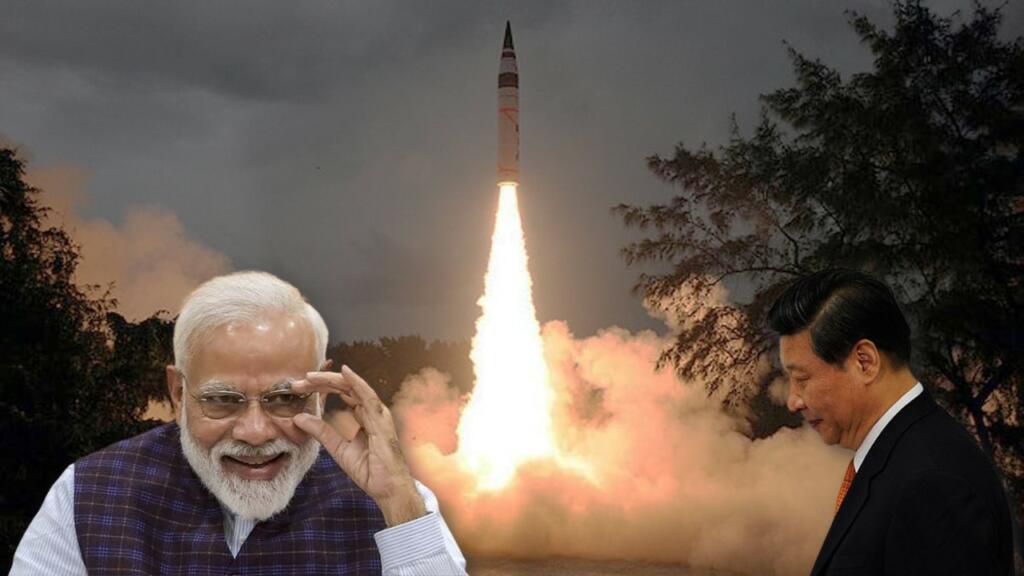Agni 5 Test: The oldest civilization in the world, which has enlightened the planet, is getting back on track to reclaim its lost glory. The geopolitical significance of India is witnessing new horizons with each passing day.
Political, economical, geopolitical, and soft power are outpacing the developed west in terms of growth. Nevertheless, our growth story has been for ages witnessed serious challenges because of the notoriety of our neighbors. Both China and Pakistan are like jealous mistresses who are always in search of an opportunity to sneak past the Indian borders. Consequently, Indian troops are expected to be vigilant and always be on their toes to neutralize any evil step of the enemy.
India breaks Chinese Myth of Defence Superiority
The recent clash between the Indian and Chinese troops in the Tawang region has depicted the growing might of India in terms of defence preparedness. The Indian troops outsmarted the Chinese on all fronts. The Indian soldiers mercilessly turned the Chinese black and blue and made them run away in search of shelter.
Evidently, the reinforcement mechanism of the troops was quick to out-blaze the Chinese. In addition, the military preparedness on the part of the Air Force in the region was spectacular and sent shivers through the Chinese government. Furthermore, according to sources, the Indian Navy has failed the attempt made by Chinese spy ships to contain the launch of Indian Ballistic Missile Test of Agni 5.
Also read: PM Modi’s veiled jibe at China and US at the Defence Expo 2022
Consequently, it can be said that Indian forces broke the myth of Chinese hegemony and military supremacy over India and gave a befitting reply to the dragon. As a result, the Chinese were forced to flee not only Tawang, but also the international waters of the Indian Ocean, as the Chinese satellite tracking ship “Yuan Wang 5” left the region much before the launch of Agni 5.
Beijing within the reach of Agni 5 missile system
In the midst of rising tensions with China over clashes along the de facto border in Arunachal Pradesh last week, India successfully completed night tests of the Agni V nuclear-capable ballistic missile.
The test has demonstrated that the missile can now reach targets farther away than 5,400 km. The nuclear-capable ballistic missile was launched off the coast of Odisha, on Abdul Kalam Island. The purported test was the ninth flight of the Agni V missile system, which was initially tested in 2012. On December 14, China’s spy ship came out of the Indian Ocean region, and the very next day, India successfully tested Agni 5, that too in the dark.
Agni 5 took off from the APJ Abdul Kalam Center in Odisha around 5.30 p.m. At that time, Prime Minister Narendra Modi was attending a function celebrating India’s victory over Pakistan in the 1971 war. The Defense Research and Development Organization (DRDO) conducted the test firing of the Agni 5 nuclear missile.
Also read: The Agni missile launch is happening despite China’s spy ship threat
Chinese resort to incursion to deter Agni 5 launch test
The missile test was conducted ahead of schedule despite the recent hostilities between India and China at the Tawang border in Arunachal Pradesh, India. The skirmish took place after China attempted to “unilaterally change the status quo” on the de facto boundary known as the Line of Actual Control last week with the invasion in the Arunachal region. The clashes left troops on both sides hurt; however, the Chinese had been effectively repelled.
The attempted incursion by the Chinese at the Line of Actual Control in the Yangtse area of Tawang sector came a month after the joint military drills between India and the US in Uttarakhand near the Chinese border. The scuffle at LAC is believed to be the most deadly to have occurred on the nuclear-armed Asian superpowers’ disputed border since the last brawl in Ladakh’s Galwan Valley in 2020 that claimed the lives of 20 Indian troops and forty Chinese soldiers. The region has become active after 1962, which saw a full-scale battle between China and India over Arunachal Pradesh, which Beijing claims in its entirety and sees as a piece of South Tibet.
Also read: It seems like Agni Prime missile has been created especially for padosi dearest Pakistan
Indian forces outsmarted the Chinese
The current regime in power under the leadership of PM Modi is well aware of the fact that a strong economic and geopolitical power needs to have robust and advanced defence capabilities. In light of the growing hostility with neighbours like Pakistan and China, and the increased occurrence of informal warfare and border incursions, the nation’s logistical and defence infrastructure is expected to meet international standards.
Support TFI:
Support us to strengthen the ‘Right’ ideology of cultural nationalism by purchasing the best quality garments from TFI-STORE.COM
